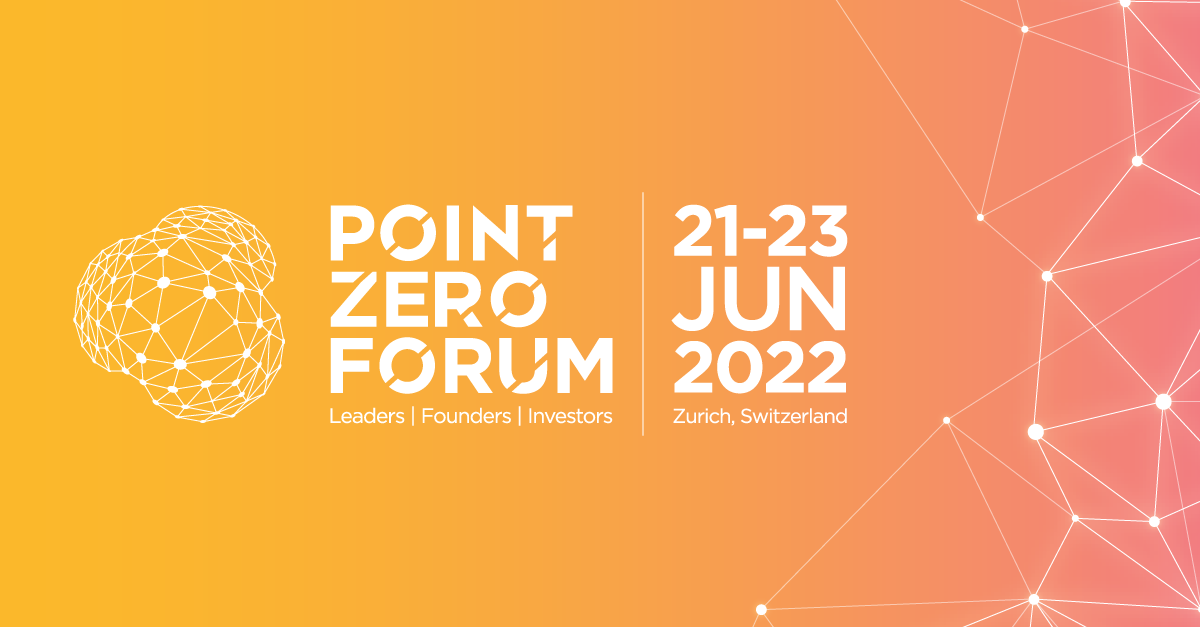IN
IN
JPN
EN
Join Our Communities

Tezos Foundation President Roman Schnider and TZ APAC Managing Director Katherine Ng joined representatives from over 200 organizations, including development banks, sovereign wealth funds, central banks, and government departments in the inaugural event.
Across 30 on-stage discussions, 9 regulatory sessions, and 15 workshops and think tanks, the attendees canvassed a range of issues at the intersection of the global financial system, technology, and climate change. Importantly, attendees zeroed in on the finance and technology sectors’ commitments to the world’s 2030 climate action goals under the Paris Agreement.
Moreover, the forum successfully brought together the latest developments and thinking around Web3 and sustainable finance, and unpacked the evolution of the DeFi sector and the opportunity it presents.
As President of the Tezos Foundation and a leader in global blockchain, Roman spoke on a panel devoted to the topic of adaptive regulatory approaches to DeFi. The 10-person discussion looked at the development of DeFi protocols and their benefits to the wider financial system, retail consumer protections and regulatory jurisdiction, obligations for centralized regulated exchanges, and thinking beyond the Crypto Travel Rule.

According to Minister of State Alvin Tan, the Monetary Authority of Singapore (MAS) is playing a role in developing global and regional taxonomies and green standards, and building Singapore into a green finance hub.
Part of that journey involves Singapore’s increasing engagement with blockchain organizations and the nation’s interaction with the sector as a regional blockchain hub.
According to Katherine, the blockchain sector has heard MAS’ and other regulatory organizations’ calls about blockchains’ need to commit to a sustainable future. The momentum comes even as Web3 technology disrupts – and arguably makes more efficient – global financial systems.
“That’s why more than 200 blockchain companies and individuals launched the Crypto Climate Accord, committing to net-zero operations and 100% renewable energy-powered blockchains by 2030”.
As recognized by the OECD - OCDE and the EU alike, blockchain can imbue greater integrity and trust in the sustainability sector and provide clarity to make more meaningful inroads in addressing climate change in a verifiable way.
A lot has been written about blockchains and the potential energy and carbon footprint they carry. “But not all blockchains are created equal,” says Katherine.
“Tezos is a pioneering Layer 1 Proof of Stake (PoS) blockchain and has been recognized as an energy-efficient alternative to more traditional Proof of Work (PoW) chains.”
According to a report released in 2021 by the French arm of PwC, the total annual carbon footprint of the Tezos blockchain is equivalent to the average energy footprint of 17 global citizens. With this type of commitment toward energy efficiency, PoS chains such as Tezos can help accelerate ESG assessments and enable green finance initiatives.

Singapore has already implemented numerous green finance initiatives, including the Accounting and Corporate Regulatory Authority (Acra) and Singapore Exchange Regulation (SGX RegCo) sustainability reporting advisory committee and the Singapore Government’s Green Bond Framework.
When it comes to initiatives incorporating blockchain, the most visible example to date comes from MAS’ Project Greenprint. The project is a collection of initiatives that aims to harness technology and data to enable a more transparent, trusted, and efficient ESG ecosystem to enable green and sustainable finance.
As part of the project, a blockchain-based network of ESG registries records and maintains the provenance of ESG certifications and verified data.
As reporting requirements on ESG increase, tracking and verifying any entity’s ESG credentials is becoming more crucial to organizations. Being able to re-risk and point to an indelible ledger recorded on a blockchain not only helps ensure the boxes are ticked in the regulatory sense, it arguably results in greater efficiencies with the potential to lower the costs of compliance and reporting overall.
And, when governments, blockchains, and the finance sector work together, they can ensure a robust and transparent sustainable future for all.